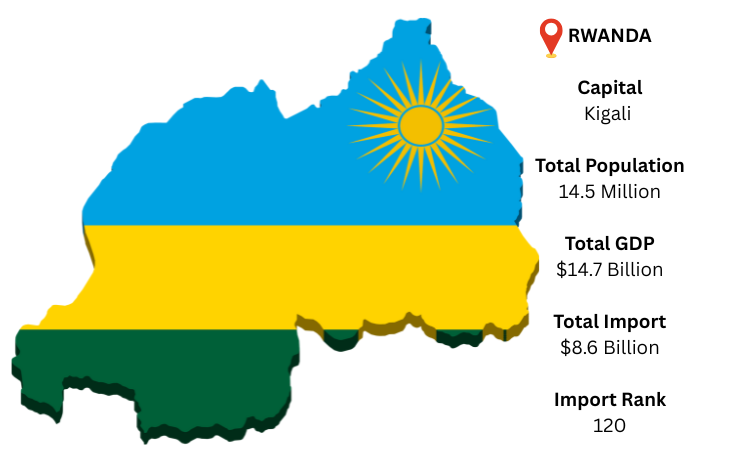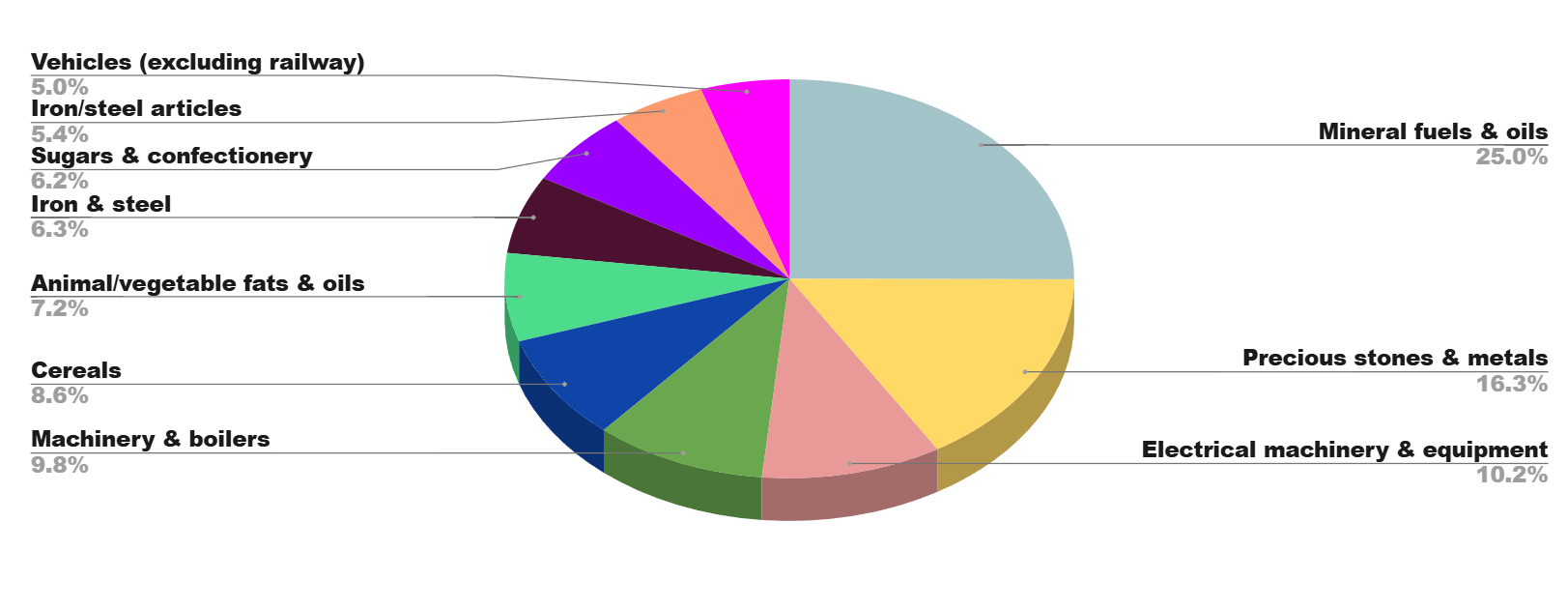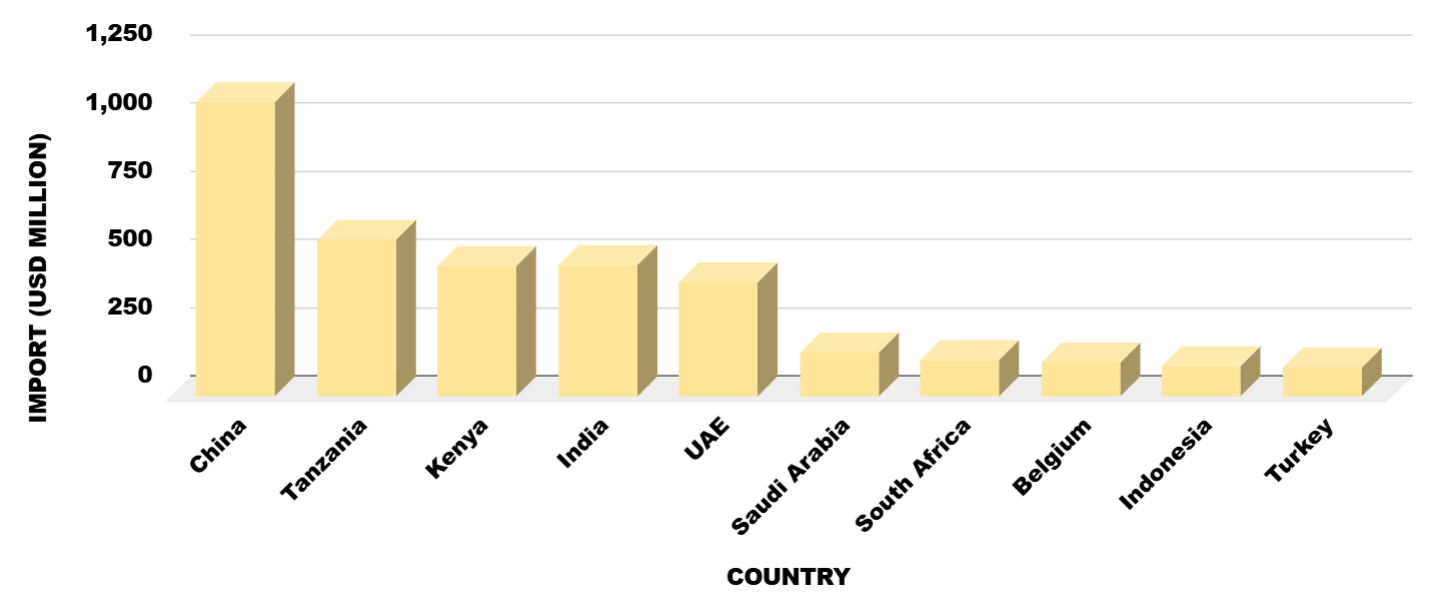The Democratic Republic of the Congo, Tanzania, Burundi, and Uganda enclose the landlocked nation of Rwanda in East Africa. Kigali is its major city and capital. Rwanda's GDP was at USD 14.77 billion in 2024. Total imports in Q3 2024 were USD 2.144 billion, according to the National Statistics Institute; extrapolating quarterly patterns, as per Rwanda import data, Rwanda imported around USD 8.6 billion in 2024. In terms of import volume, Rwanda is ranked between 120th and 125th in the world. The main provider is China, which is followed by Tanzania, Kenya, India, and the United Arab Emirates.



